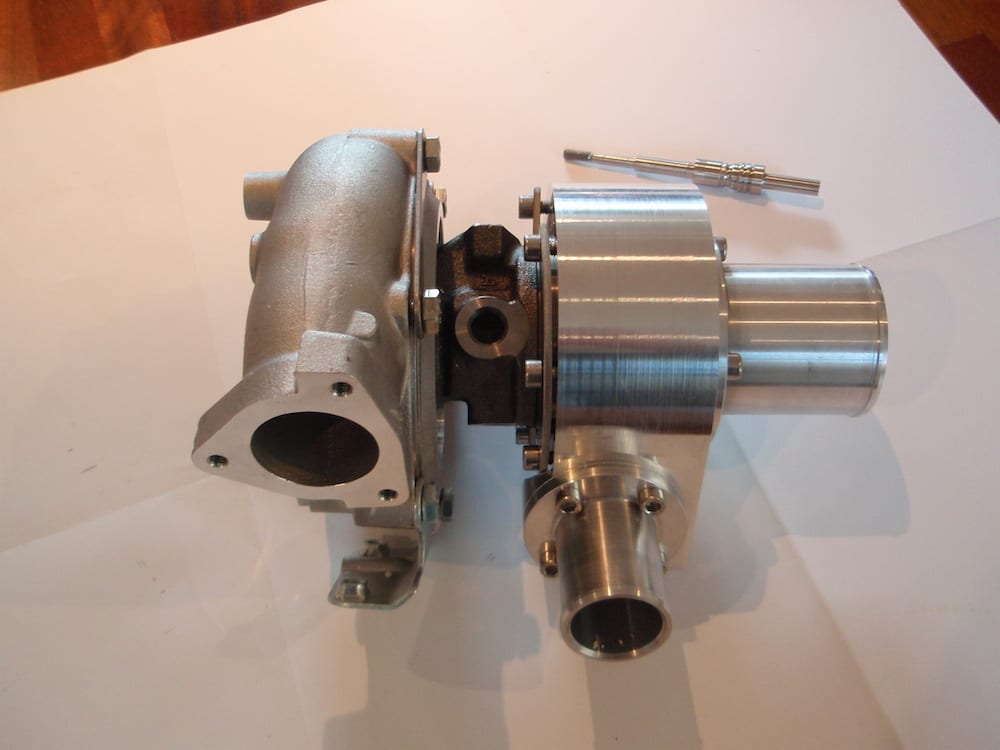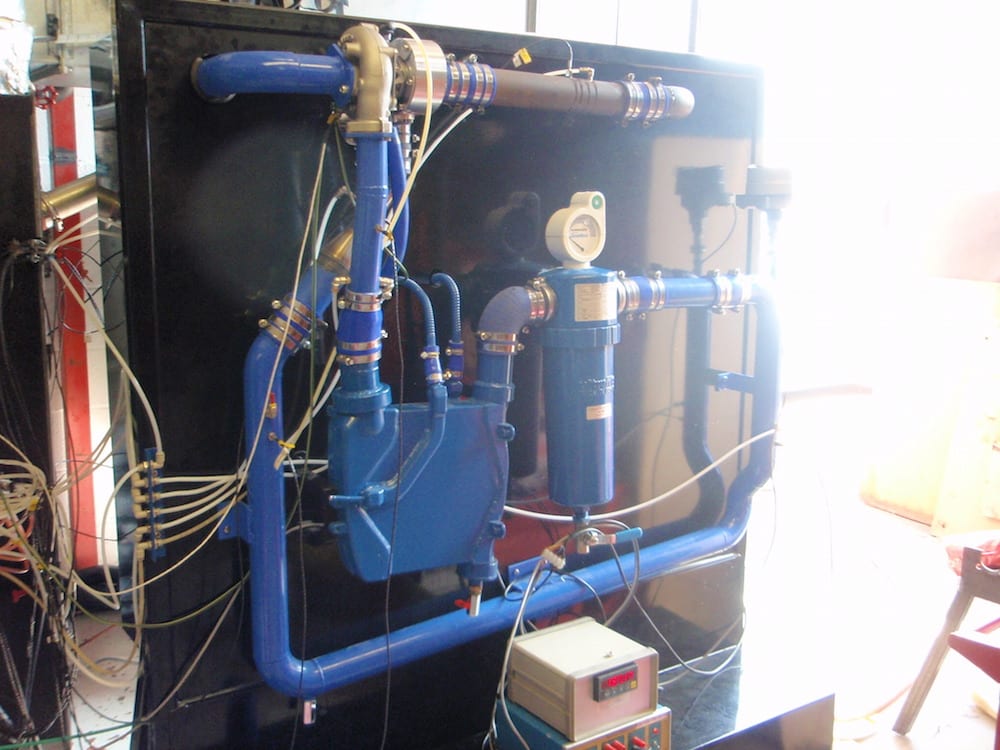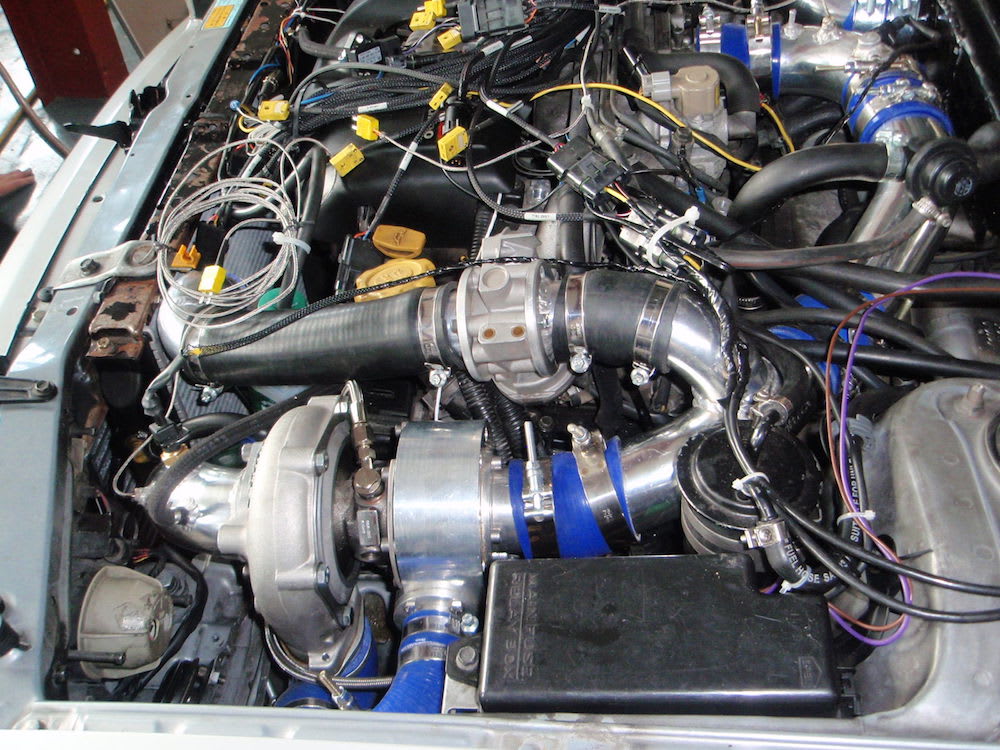
The Turbo-Cooling system (TCS) is a system for reducing engine charge air temperature to below ambient levels. Thermodynamically it is an air-cycle cooling system, which provide the charge air cooling function for a turbocharged gasoline or diesel engine. Charge air temperatures as low as -10 degC can be achieved & the cooling effects extend down to low engine speeds & loads. The benefits are primarily those of extending the knock limit & reducing over-fuelling requirements in highly boosted engines. The market for such engines is increasing rapidly, along with progressive increases in specific power. For diesel engines the main benefits are recued engine-out NOX emissions plus the increased potential for operating with a 'low temperature' combustion system.
The core of the TCS is a turbo-expander. WDL have developed a prototype, based on an automotive turbocharger. The exhaust turbine wheel & housing have been replaced with a dedicated 'cold air' turbine & matching housing, with a rig-tested efficiency of more than 85%. The system operate by 'over-boosting' the charge air from the standard compressor/CAC , then cooling with an intercooler, followed by expansion though the new turbine. This results in significant charge air temperature reduction & the power from the turbine drives the compressor of the turbo-expander. The complete system of turbo-expander, intercooler, ducting & controller is compact & cost effective. It is an additive technology which does not require any base engine changes, although an increase in compression ratio shows benefits in drive-cycle economy.
Work to date includes:
a) 1D system, engine & turbine performance modelling
b) 3D turbine design & prototype manufacture
c) Rig-testing & performance validation of the turbo-expander
d) 1D powertrain performance & transient responses studies
e) 2D & 3D combustion modelling, working from a detailed baseline
f) Mule vehicle installation & highway testing
The next phase of work is the installation of the prototype system into a demonstrator vehicle. The business plan includes OEM & Tier 1 supplier engagement, leading to more intensive validation & a production design. In parallel the TCS will be launched into the low-volume performance after-market.
The work to date indicates typical specific power increase of the order of 20% ,coupled with a 3% drive-cycle fuel economy gain with an optimised compression ratio. For a diesel combustion system the full load NOx reduction is 15 ~ 20%; the opportunities as an enabler for 'low temperature' combustion system requires investigation.
In recent years WDLs work has been published in several combustion engine conferences & a paper on the later combustion modelling work will be presented at an IC engine conference in London in December 2015
-
Awards
-
 2015 Top 100 Entries
2015 Top 100 Entries
Like this entry?
-
About the Entrant
- Name:Chris Whelan
- Type of entry:teamTeam members:Chris Whelan
Roger Richards
Matt Saville - Software used for this entry:AMESim, Nastran, Ansys, SolidWorks, GT-Power
- Patent status:pending








